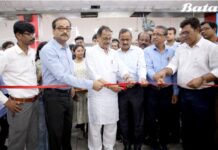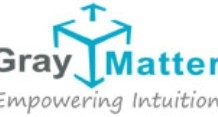Tokyo, Apr 24, 2019: Fujitsu Limited will procure sustainable ingredients that have received certification for Good Agricultural Practices (GAP)(1) on an ongoing basis, offering dishes with such ingredients in employee cafeterias at four facilities. Through this effort, Fujitsu is working to take action as a company that takes into further consideration the consumption and production of sustainable ingredients.
Background and Objective
In recent years, a variety of companies and organizations in international society have been working on issues around the world in the fields of environment, economy, and society, aiming to accomplish the Sustainable Development Goals (SDGs)(2). The SDGs encompass a wide range of activities, and even the Tokyo 2020 Olympics aims to operate in a way that takes into consideration not only environmental issues, but also issues related to human rights and labor problems.
The Fujitsu Group is also undertaking activities aimed at accomplishing the SDGs, striving to resolve a variety of societal and environmental issues using ICT, including the reduction of greenhouse gas emissions and further stabilization of the food supply. As part of its efforts to expand awareness of sustainability and establish an approach that emphasizes these issues, Fujitsu has now decided to procure sustainable ingredients on an ongoing basis and make them available on employee cafeteria menus.
Ingredient Procurement
With the collaboration of FJrefre Corporation, which operates Fujitsu’s employee cafeterias, Fujitsu will use GAP-certified ingredients to offer dishes labeled as “World Cuisine” available at four locations: Kawasaki plant, Shiodome headquarters, Kamata Solution Square, and Shinkawasaki Technology Square. Through this initiative, Fujitsu will continue to procure sustainable ingredients, contributing to the creation of a society with a balance between consumption and production.
Initiatives in the Food and Agriculture Sector
Fujitsu is supporting the collection and analysis of data essential to implement GAP, including agricultural productivity management and business management, providing the Fujitsu Intelligent Society Solution Akisai Food and Agriculture Cloud to such customers as agricultural production companies. Moreover, it has developed the Chienowa JGAP Guidance Support Tool with the goal of standardizing guidance methods and the level of internal oversight for JGAP guidance personnel(3), as well as improving the efficiency of guidance. This tool was recommended by the Japan GAP Foundation in October 2018, and is also supporting the prosperity of the food industry using ICT.
In addition, Fujitsu is also actively working to provide sustainable ingredients, obtaining GAP for products such as low-potassium lettuce and spinach produced at the Aizu-Wakamatsu Akisai Plant Factory by Fujitsu Home & Office Services Limited, as well as tomatoes, bell peppers, kale, and other crops produced by Smart Agriculture IWATA Co., Ltd.
(1) Good Agricultural Practices (GAP) Refers to good agricultural production process management. Aims to create safe agricultural products by managing inspections and records of various processes in agriculture.
(2) Sustainable Development Goals (SDGs) Goals for sustainable development adopted by the United Nations in 2015, consisting of 17 goals, 169 targets, and 230 indicators.
(3) JGAP guidance personnel Personnel who provide guidance and advice for farms and producer organizations, such as JA, aiming to implement JGAP.
Corporate Comm India(CCI Newswire)


























